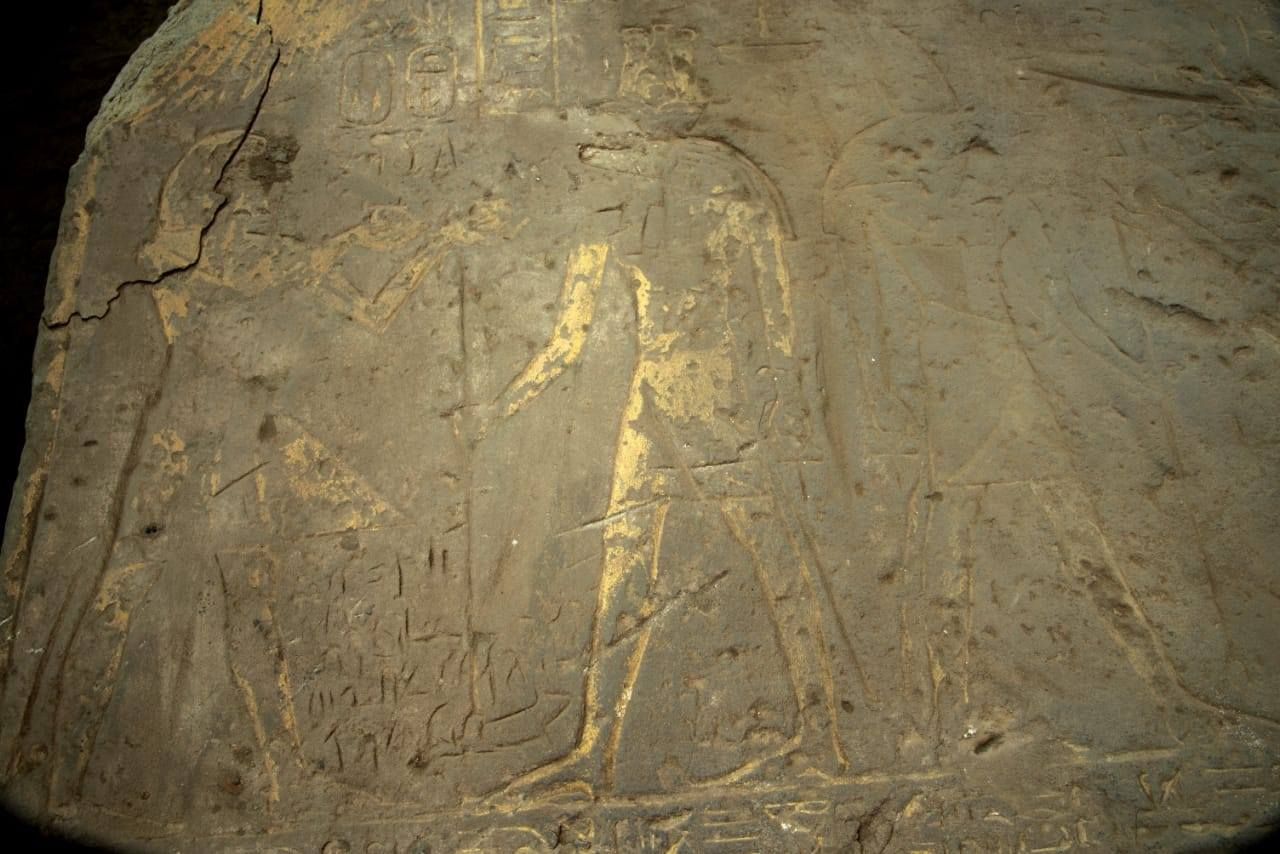
Two ancient sandstone reliefs have been discovered at a temple in the Egyptian governate of Aswan, according to a statement published by the country's antiquities ministry.
Archaeologists made the find at Kom Ombo, a unique double temple dedicated to two ancient Egyptian deities—crocodile god Sobek and falcon-headed god Horus.
The first relief is around 30 centimeters (12 inches) and measures 2.3 meters long (7.5 feet) by 1 meter wide. It is well preserved, although the slab of stone is broken into two parts, according to Mostafa Waziri, head of Egypt's Supreme Council of Antiquities.
The artwork belonged to Seti I, an ancient Egyptian king of the 19th dynasty (1292–1189 B.C.) who ruled the territory from 1290 to 1279 B.C. It depicts Seti standing next to Sobek and Horus with the sun shining above them. Surrounding the figures are numerous inscriptions.
The second relief—which is larger, measuring 3.25 meters long and 1.15 meters wide—was in much worse condition and had to be restored by experts using the several broken pieces that were found.
It belonged to King Ptolemy IV, a Macedonian king of Egypt who reigned for 17 unstable years between 221-204 B.C. He headed a Hellenistic kingdom that was established with the accession of Ptolemy I following the death of Alexander the Great—who had conquered Egypt in 332 B.C.
The second artwork shows Ptolemy IV next to his wife, Horus and other Egyptian deities, according to Waziri.
The reliefs are not the only recent discovery to be made in the Aswan region. In September, Egyptian archaeologists found the statue of a sphinx while draining water from the Kom Ombo temple.
Shortly after this find, a sandstone sarcophagus containing an intact mummy wrapped in linen was discovered on the west bank of the Nile, on the opposite side to the city.
Uncommon Knowledge
Newsweek is committed to challenging conventional wisdom and finding connections in the search for common ground.
Newsweek is committed to challenging conventional wisdom and finding connections in the search for common ground.
About the writer
Aristos is a Newsweek science reporter with the London, U.K., bureau. He reports on science and health topics, including; animal, ... Read more
To read how Newsweek uses AI as a newsroom tool, Click here.








